May 10 update on COVID-19 in MN: Spring wave receding; vaccination pace crawling

Go Deeper.
Create an account or log in to save stories.
Like this?
Thanks for liking this story! We have added it to a list of your favorite stories.
3 things to know
Vaccination pace hovering at late February, early March levels
60.3 percent of Minnesotans 16 and older have received at least one dose; 49.1 percent — more than 2.1 million people — are now completely vaccinated
Daily active case counts, hospitalizations down
Updated: 11:43 a.m.
Minnesota’s newest COVID-19 data shows Minnesota’s active cases and hospitalizations ebbing — and zero newly reported deaths. Vaccinations, though, remain at a relative crawl even as state public health leaders plead with still-unvaccinated adults to get their shots.
More than 60 percent of state residents 16 and older have at least one dose of a COVID-19 vaccine. But with the pace only inching forward now, it’ll take longer to reach 70 percent — the threshold Gov. Tim Walz linked to ending the statewide mask mandate before July 1.

A few weeks ago, the state was on pace to hit the 70 percent vaccination mark in mid-May; now it's pushed back to at least June 18, if the current rate holds.
It’s not for lack of supply: Walz said last week that the federal government stands ready to ship more vaccine to Minnesota. Eligible Minnesotans can now walk in for a COVID-19 vaccination without an appointment at the state’s community vaccination program locations.
Turn Up Your Support
MPR News helps you turn down the noise and build shared understanding. Turn up your support for this public resource and keep trusted journalism accessible to all.
Active cases, hospitalizations down
The count of known, active COVID-19 cases came in at 11,685 — down from the most recent high of about 20,000 in mid-April and the lowest since late March, offering more evidence of a retreat in the spring surge.
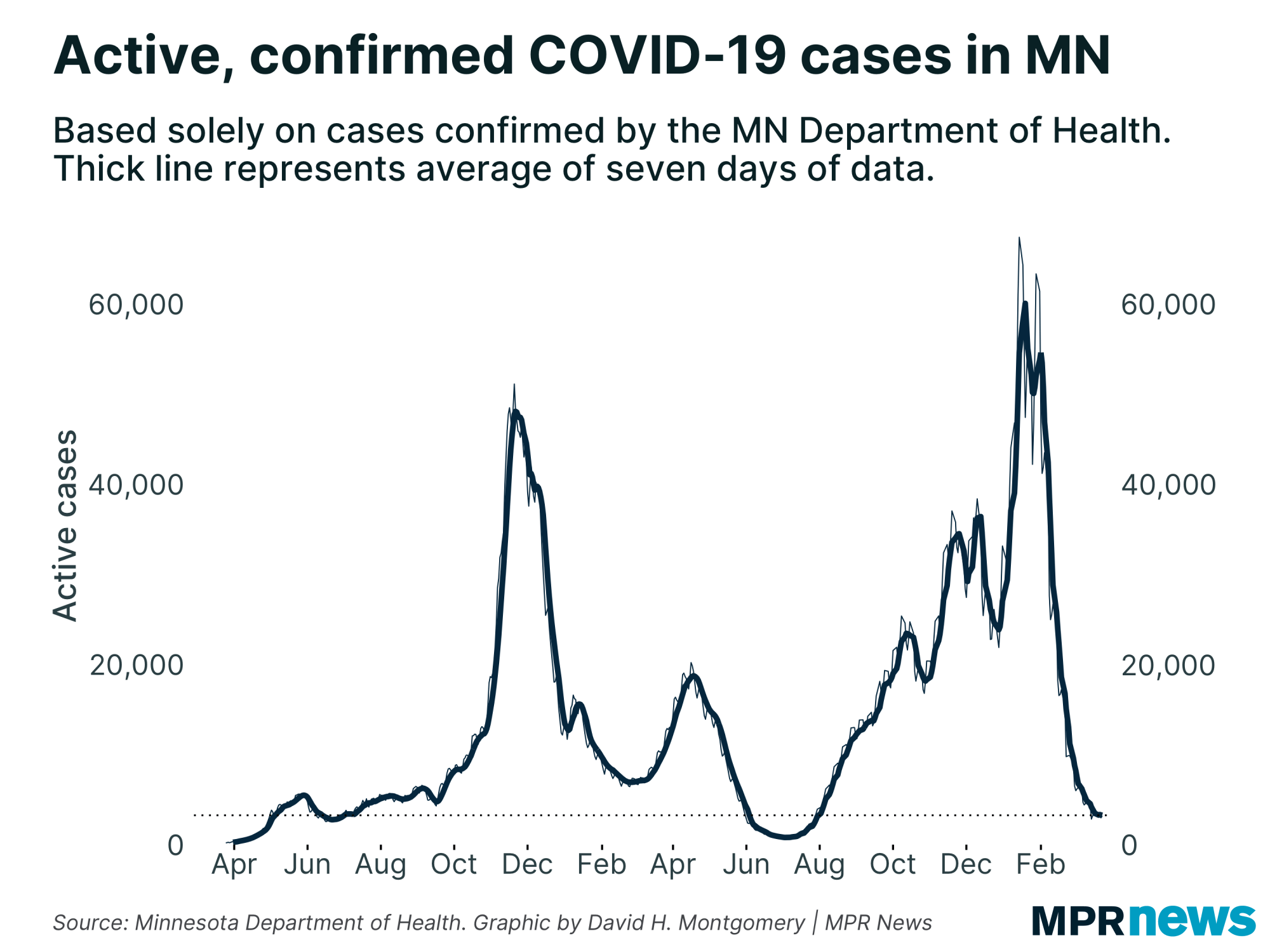
Monday’s report showed 481 people hospitalized with COVID-19 in Minnesota; 133 needed intensive care. Both figures continue to trend down from their recent peaks.
Perhaps more significantly, there were only five new COVID-19 hospitalizations. Setting aside the early days of the pandemic, that’s the third-lowest daily count, after March 7 and March 8 of this year.
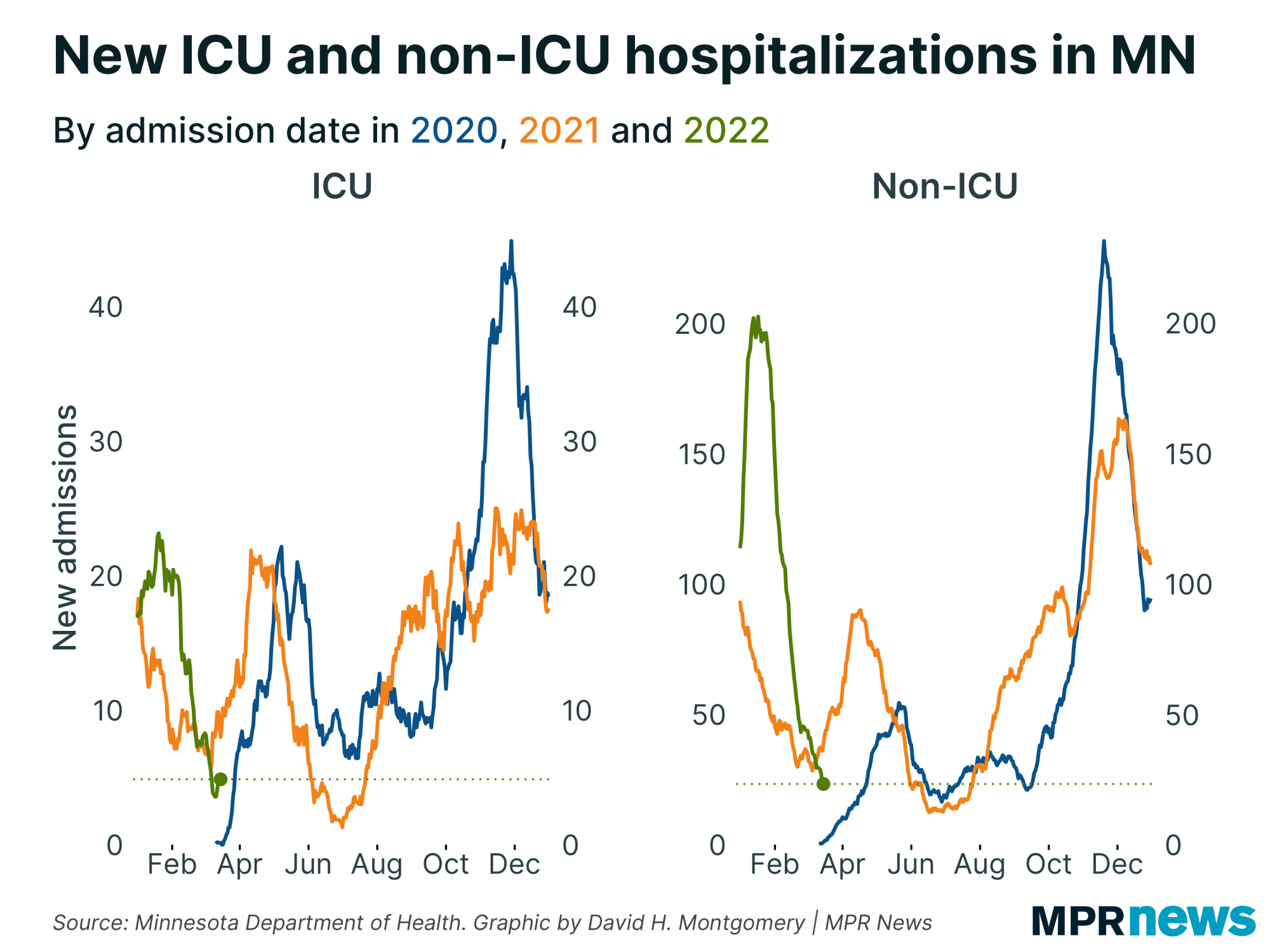
With no newly reported deaths, Minnesota’s pandemic toll stayed at 7,231. Among those who have died, about 61 percent had been living in long-term care or assisted-living facilities; most had underlying health problems.
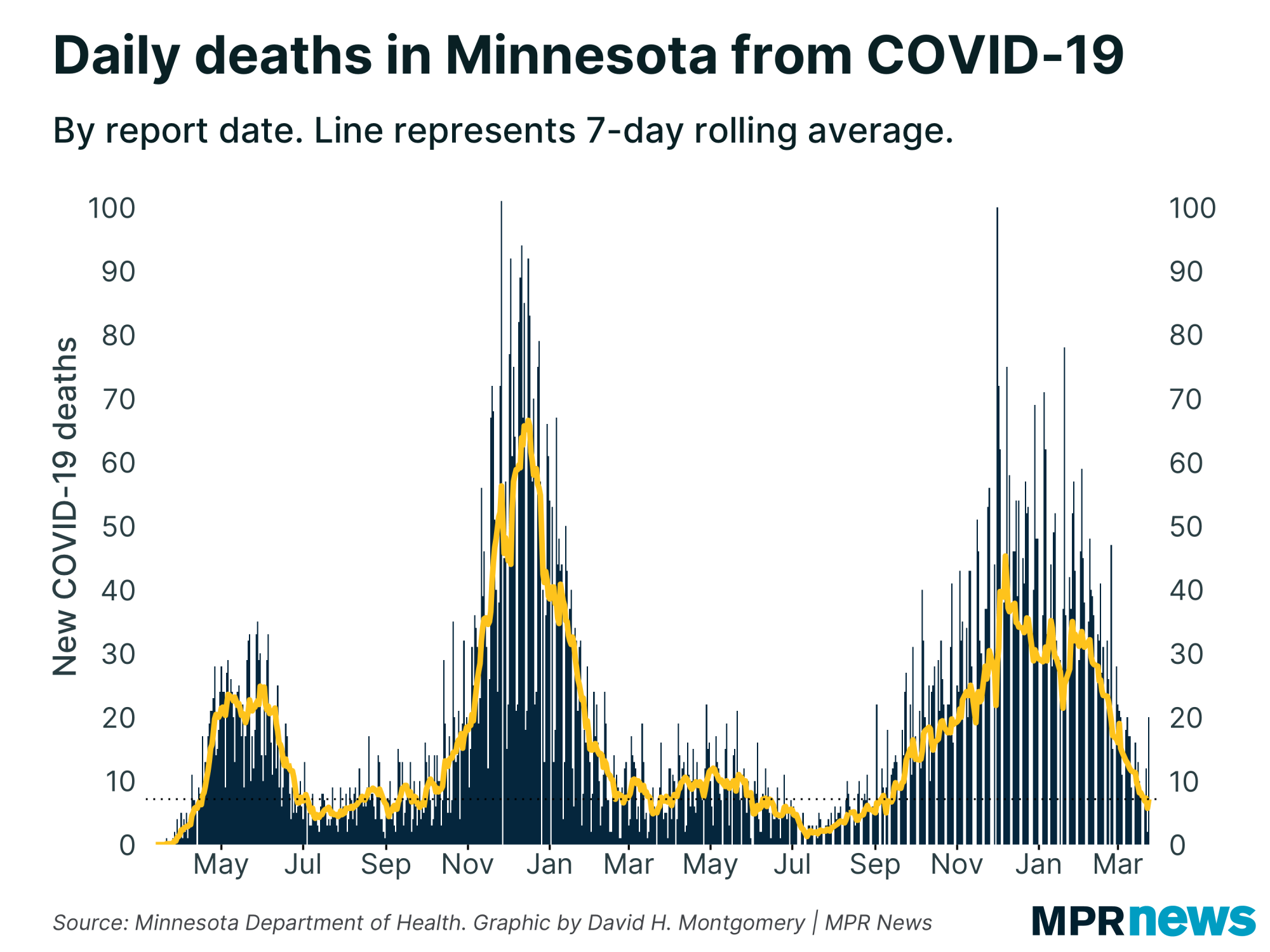
The state has recorded 588,952 total confirmed or probable cases so far in the pandemic, including the 1,191 posted Monday. About 97 percent of Minnesotans known to be infected with COVID-19 in the pandemic have recovered to the point where they no longer need to isolate.
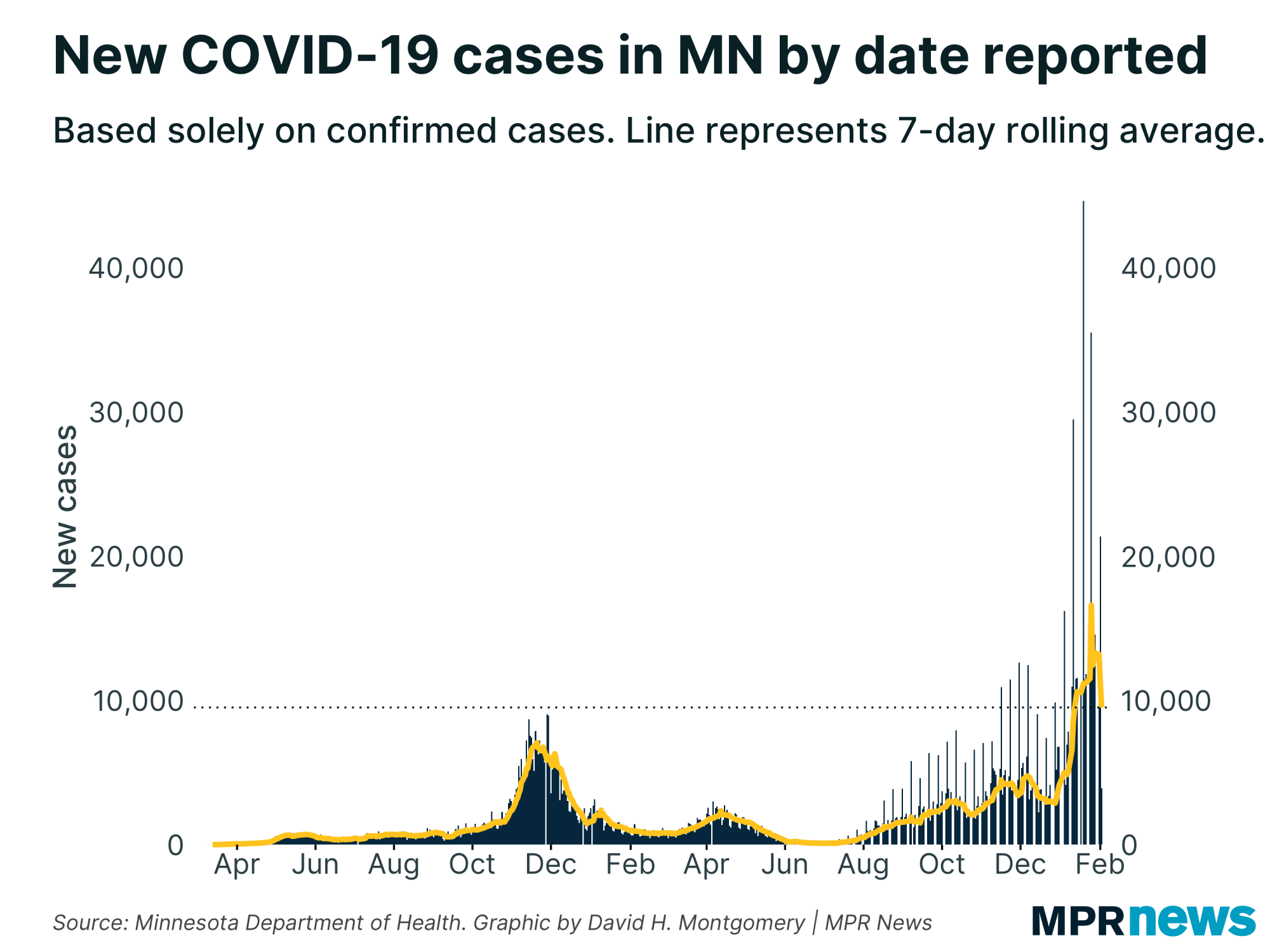
Regionally, all parts of Minnesota are in better shape than they were in late November and early December. Case counts had been creeping up the past few weeks across the state, but the trend appears to have peaked.
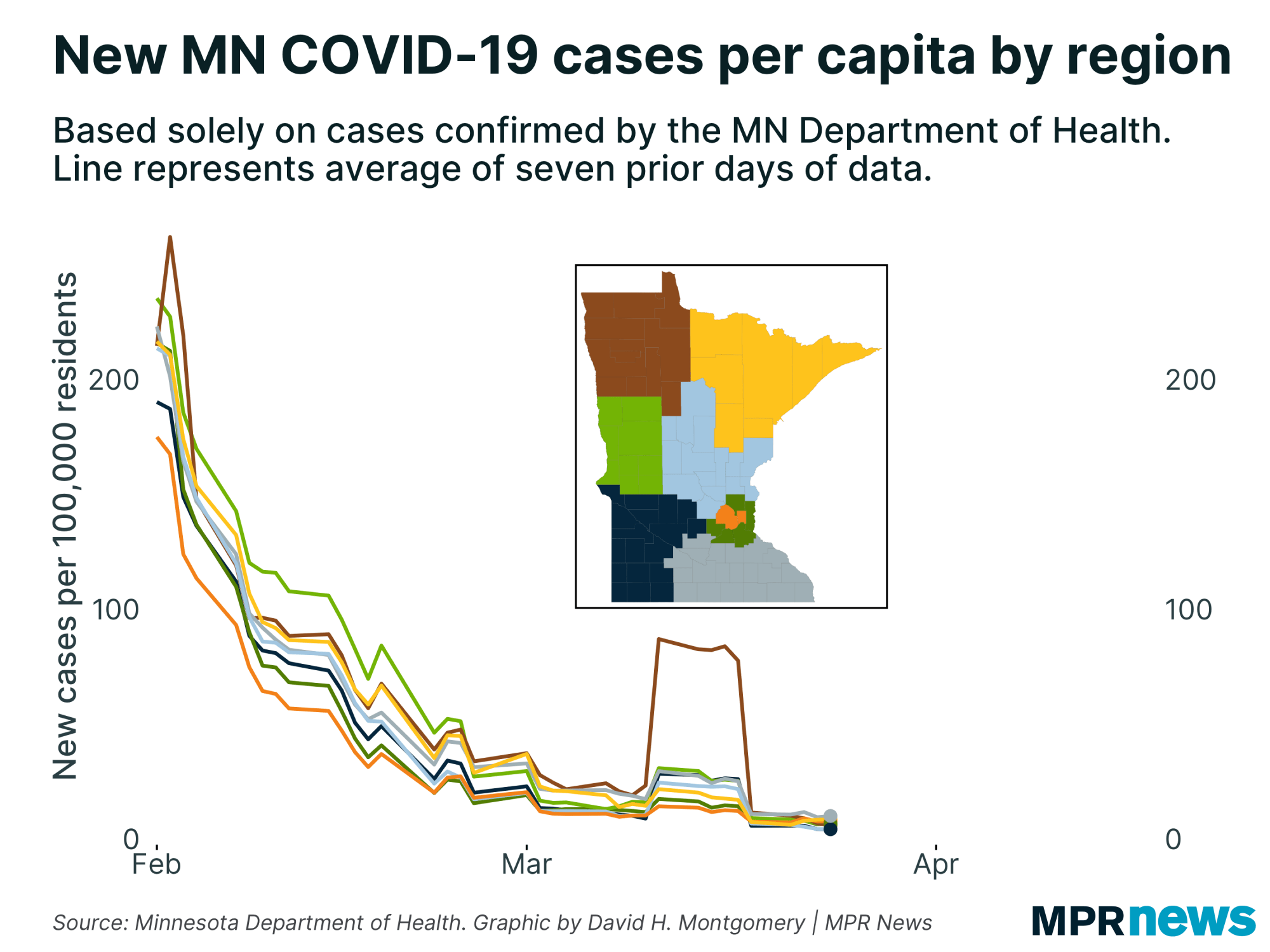
Officials continue to implore Minnesotans to keep their guard up during proms, graduations and other spring events, noting that more contagious COVID-19 variants are driving new cases across the state.
Youth counts concerning
While the overall trends are solid, officials are increasingly concerned about the spread of COVID-19 in younger people. They’ve been urging more testing of middle and high school students and weekly testing for athletes, coaches, referees and other youth sports participants.
People in their 20s still make up the age bracket with the state’s largest number of confirmed cases — more than 109,000 since the pandemic began.
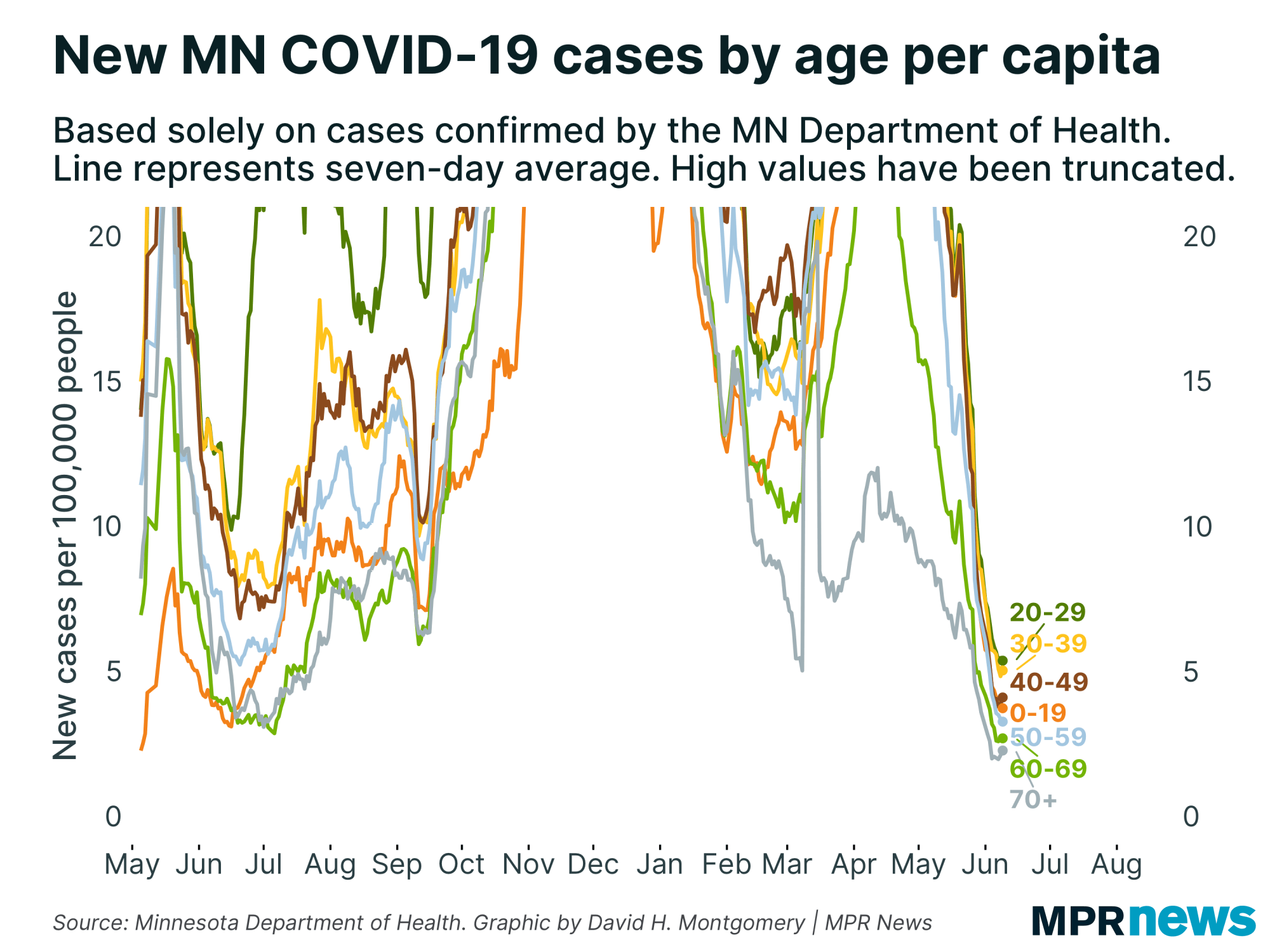
The number of high school-age youth confirmed with the disease has also grown, with more than 48,000 15-to-19-year-olds known to be infected during the pandemic.
Although young people are less likely to feel the worst effects of the disease and end up hospitalized, experts worry they will spread it unknowingly to older relatives and members of other vulnerable populations. Those with the COVID-19 virus can spread it when they don’t have symptoms.
Vaccination numbers
More than 2.6 million residents 16 and older now have at least one vaccine dose; more than 2.1 million have now completed their vaccinations as of Monday’s update.
That works out to more than 49 percent of the 16-and-older population completely vaccinated and more than 60 percent with at least one shot, including nearly 88 percent of those 65 and older.
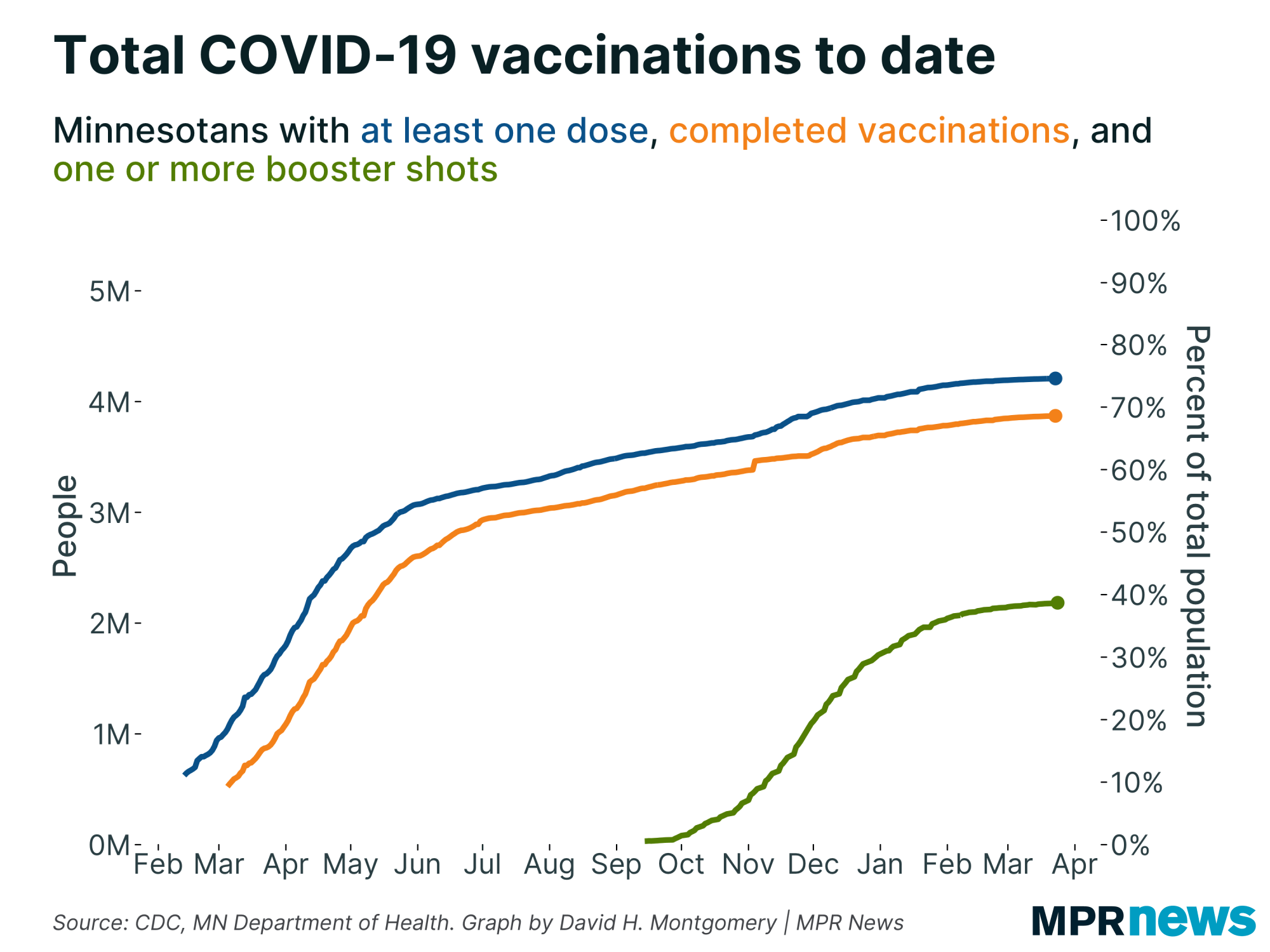
Officials acknowledge the state must do more to connect unvaccinated people to shots.
The work to reach out to people who haven’t yet been vaccinated “will be a bit harder” than when Minnesotans were lining up for the shots, state infectious disease director Kris Ehresmann said last week.
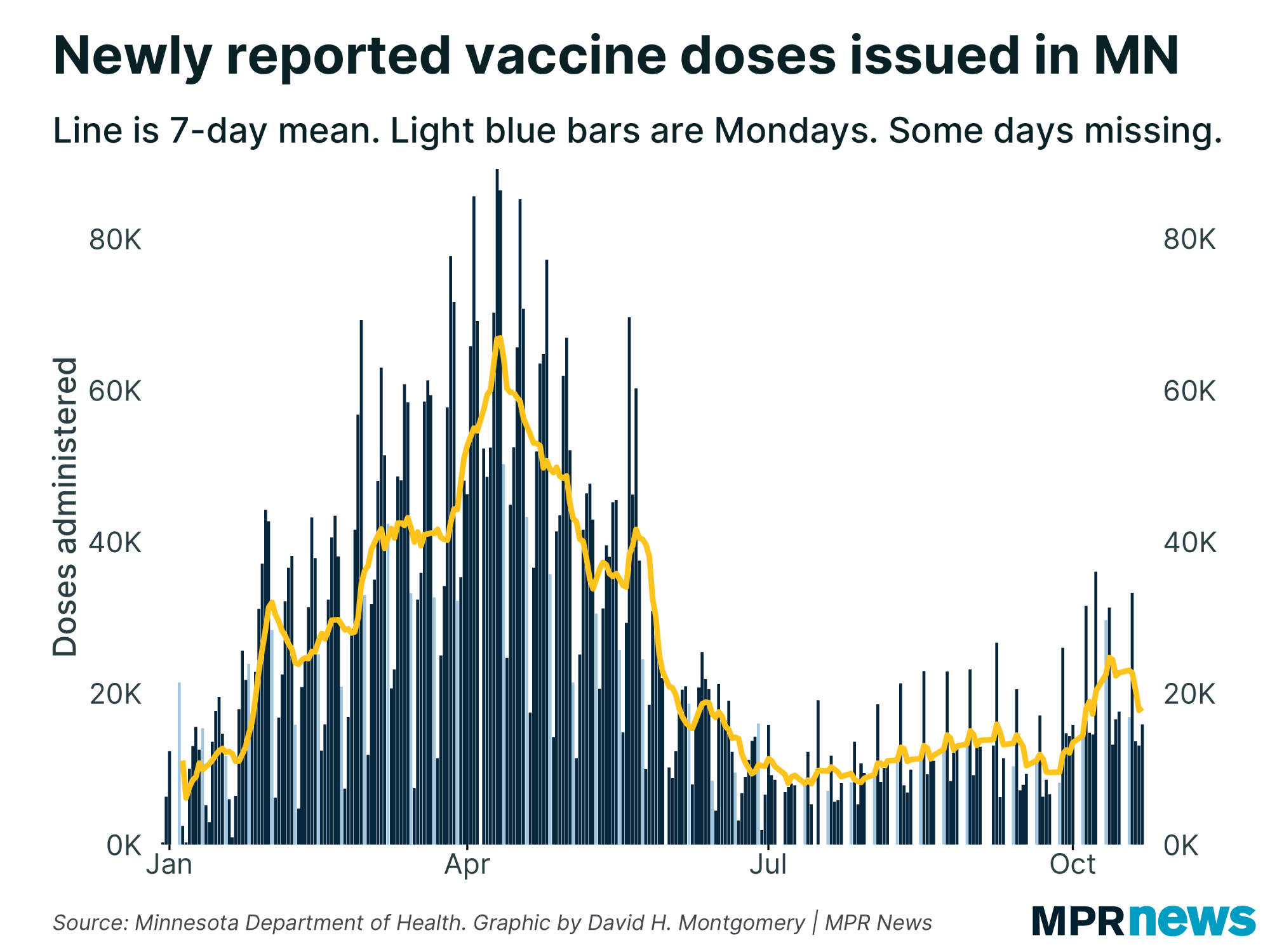
“We recognize successes are going to be hard to come by in this phase,” she said. “Anytime we move up by a percentage point [in people vaccinated], that’s a big deal.”
COVID-19 in Minnesota
Data in these graphs are based on the Minnesota Department of Health's cumulative totals released at 11 a.m. daily. You can find more detailed statistics on COVID-19 at the Health Department website.
Latest developments
St. Paul brewery hosts pop-up vaccine site, offers free beer for the vaccinated
Lake Monster brewing in St. Paul is hosting a vaccination clinic Monday evening where they offer a free beer to people who get vaccinated.
The brewery announced on its Facebook page that nearby St. Paul Corner Drug will be doing a pop-up vaccine clinic at the brewery near Vandalia Street and Interstate 94, near Highway 280. The pharmacy has 300 doses of Johnson &Johnson vaccine, which will be administered for free, no insurance required.
And it comes with a free beer, for people of legal drinking age. Appointments are not required, and the clinic runs from 6 p.m. to 7:30 p.m., or when the shots run out.
— Tim Nelson | MPR News



